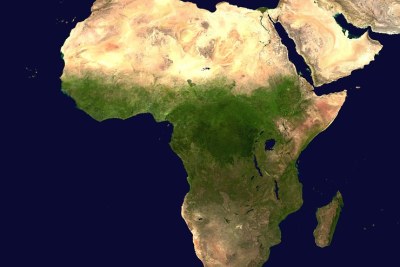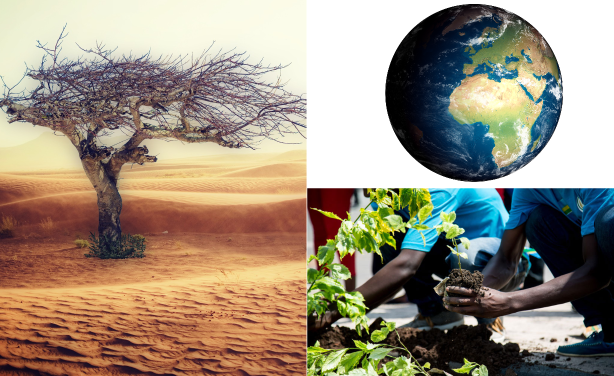-
Africa: How Countries Alongside the Sahara Can Restore Productive Land Faster
The Conversation Africa, 13 September 2021
Nigeria's President Muhammadu Buhari is about to take over the presidency of the Pan-African Agency of the Great Green Wall - the continent's effort to restore degraded cropland,… Read more »
-
Africa: Africa's Worsening Climate - Here's How the United States Can Help Africa
IPS, 17 May 2021
Recently, I participated in a Congressional hearing on the "Effects of climate change in Africa", before the House Foreign Affairs Subcommittee on Africa, Global Health, Global… Read more »
-
Africa: Commission Acknowledges Great Green Wall Initiative Meaning
Ethiopian Herald, 4 November 2020
Commission urged African nations to strengthen efforts for the realization of African Great Green Wall Initiative (GGWI) portraying practical response to the call of African Great… Read more »
How Countries Along the Sahara Can Restore Productive Land Faster
Nigeria's President Muhammadu Buhari is about to take over the reins as the Pan-African Agency of the Great Green Wall president - succeeding Mauritania's President Mohamed Ould Ghazouani.
It is an ambitious initiative started in 2007 by the African Union.The original aim was to plant an 8,000km long, 15km wide tree barrier linking Dakar to Djibouti. This initiative aims to stop desert encroachment, protecting ecosystems and human communities in the south and north of the Sahara, from the harmful effects of desertification and drought. It is now running far behind schedule and much work remains, to achieve farmer prosperity.
The AU and the Pan-African Agency of the Great Green Wall discarded the 2012 plan, shifting the focus of efforts from trees to humans. Improving food security and livelihoods will be linked to containing desertification. The new vision aims at establish a mosaic of green and productive landscapes across a broad zone surrounding the Sahara. The aim is to restore whole agro-ecosystems through land management practices that enhance the livelihoods of the rural people.
Restoring the 100 million hectares of degraded lands surrounding the Sahara is possible. The strategy going forward is clear: invest in scaling-up the proven successes, and let go of the ones that have failed, writes Lars Laestadius, Adjunct Research Scientist, Swedish University of Agricultural Sciences; Chris Reij, Sustainable land management specialist, World Resources Institute, and Dennis Garrity, Senior Fellow, EverGreen Agriculture Partnership Chair, World Agroforestry (ICRAF).
InFocus
-
The Sahel region's Great Green Wall Initiative received a major boost from the African Development Bank on Monday. During a forum hosted by French President Emmanuel Macron and His ... Read more »
-
The initial idea for the Great Green Wall, launched in 2007, was to plant an 8,000-km band of trees spanning 11 key nations from Senegal in the west to Djibouti in the east. Its ... Read more »
-
The change in climate and weather patterns is precipitating a rapid spread of the Sahara Desert, encroaching into lands and engulfing huge lakes, according to climate scientists. ... Read more »




